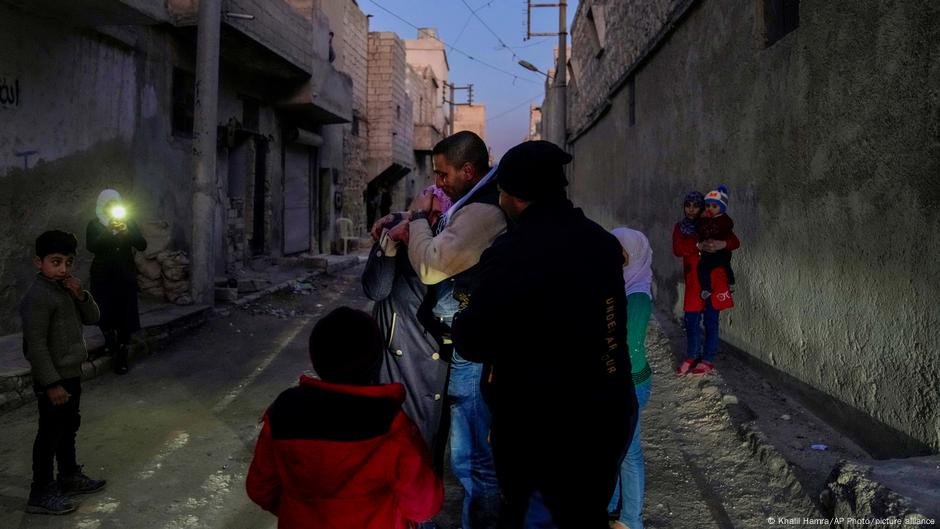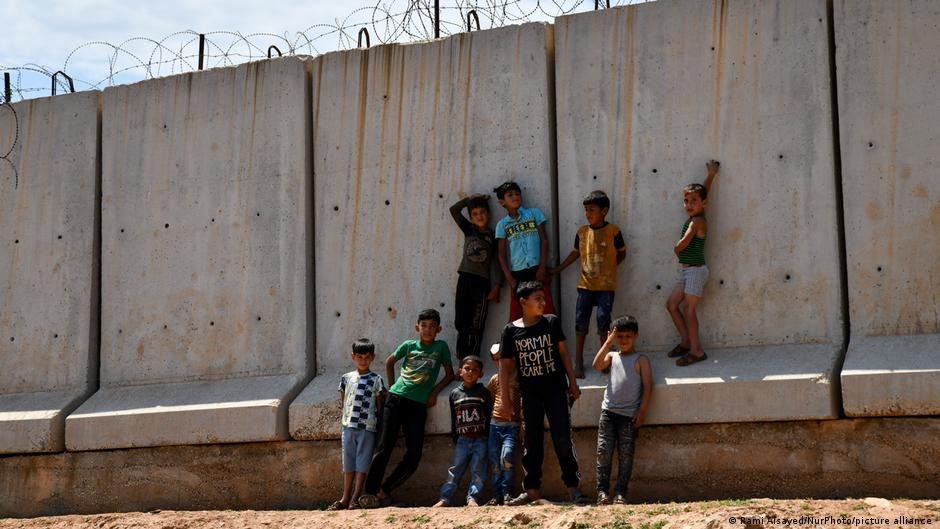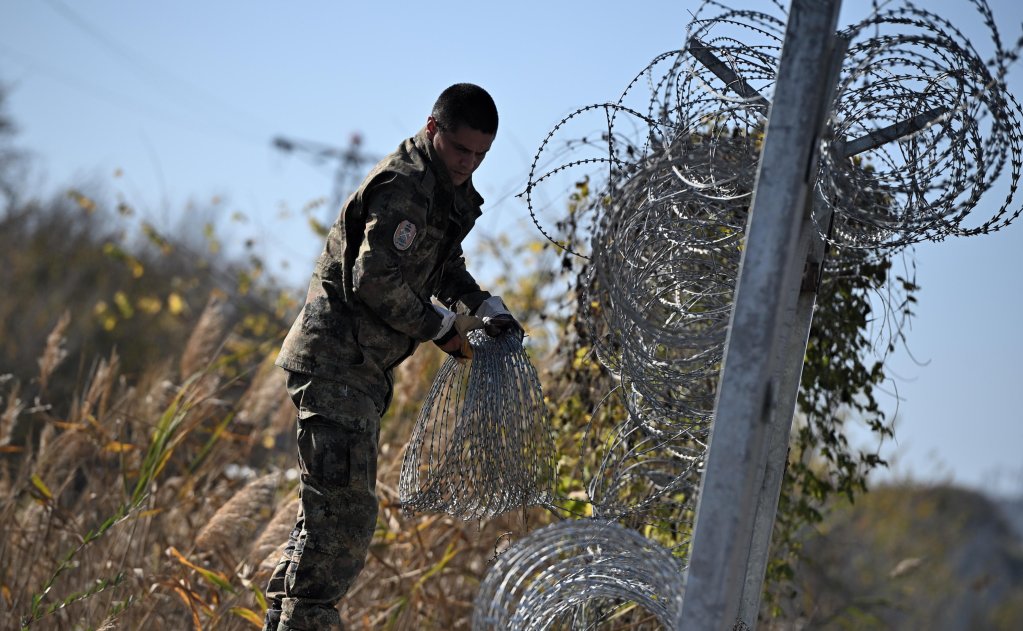An investigative report by Balkan Insight outlines a broader trend faced by Syrian refugees, whereby various European countries are reportedly finding ways to make people return to Syria following the fall of the Assad Regime. However, for many Syrians, peace remains precarious, making returning voluntarily more of a distant wish rather than a viable option.
Syrian asylum seekers and refugees are being coerced into choosing between "voluntarily" returning to their country or enduring months in detention, the Balkan Insight reported today (October 9).
The investigative report outlines a broader trend faced by Syrian refugees whereby various European countries are finding new ways to make Syrians return to their country following the end of a decades-long civil war.
In the Bulgarian capital Sofia, the Balkan Insight reported "round-the-clock police patrols and ID checks" in and around the periphery of a neighborhood dubbed locally as 'Arab Street' because of its high concentration of migrants and refugees there.
Authorities allegedly stop people without papers and bring them to the Busmantsi detention center for processing for "voluntary" return.

'National security' used as excuse in many cases
A Syrian refugee called Imad (name changed) recalls how he fled Aleppo as a minor in 2020, eventually finding his way to Bulgaria, where he was granted international protection in 2023.
A year later, authorities reportedly arrested Imad at his home at dawn, with the State Agency for National Security -- Bulgaria's intelligence service -- stripping him of his residence permit on account of "national security" reasons.
Imad alleges that authorities told him he needed to sign voluntary return papers or be forcibly deported, even though he has no home to return to in Syria.
Furthermore, he also has a younger brother in Bulgaria whom he cannot leave behind.
To this day, Imad remains in detention, where he said he is regularly interrogated by Frontex counselors, as his appeals against his expulsion have so far been unsuccessful.
Read Also'I have nothing left here': Syrians no longer protected in Bulgaria since the fall of Assad
Allegations against Frontex
As of August 2025, Balkan Insight recorded seven Frontex counselors in Bulgaria having conducted a total of 1,152 sessions with dozens of refugees. A Frontex spokesperson said that their work there had merely assisted in the voluntary return of 69 Syrian nationals from Bulgaria between March and August.
Human rights groups however claim that these counseling sessions, taken together with inhumane detention conditions, constitute a form of coercion.
People like Imad, who are detained on accusations of national security, can remain locked up for up to 18 months, as even advocating to be let out of detention can lead to a migrant being labeled a national security threat.
Read AlsoUNHCR calls for more aid to support Syrians returning home
Bulgaria: Syrians report coercion and deportation
Authorities in Bulgaria insist these returns are all voluntary, with each person reportedly receiving 150 euros in cash at the airport before boarding a return flight to help with their start-up costs in Syria.
However, things weren't always like this; the number of Syrian nationals entering Bulgaria reached its peak in 2023, leading to Bulgaria's asylum system undergoing a sharp shift the following year.
This is when the Assisted Voluntary Return and Reintegration (AVRR) was expanded under the auspices of the Bulgarian interior ministry, especially in the wake of Assad's ouster in December 2024.
The success rate of asylum applications from Syrians began to plummet: In the first six months of 2025 alone, more than 200 Syrians were returned home after failing with their asylum claims.
The State Agency for Refugees (SAR) justified the new pattern of refusals by claiming that violence in Syria "does not reach a level of indiscriminateness" which could be regarded as severe enough to merit protection, citing findings by the EU Agency for Asylum (EUAA).

Major uptick in rejections among Syrians
Denied asylum applications continued to pile up in the lead-up to 2025, with Bulgaria rejecting nearly all asylum claims from Syrian nationals since the fall of Assad; even decisions that have reached the country's Supreme Court have reportedly resulted in rejection.
In the first quarter of 2025, over 1,000 Syrian nationals were denied asylum and are currently awaiting further steps -- including, in many cases, deportation or voluntary return.
In its March 2025 report on Bulgaria, the United Nations High Commissioner for Refugees (UNHCR) stated that Bulgaria's classification of Syria as a "safe country" ignores ongoing risks and the personal circumstances of asylum seekers, while falling short of international standards.
Read Also'I have nothing left here': Syrians no longer protected in Bulgaria since the fall of Assad
Highest number of border 'pushbacks'
Bulgaria also tops the ranking of EU states that are reported to systematically push back migrants attempting to cross into its borders.
According to a report by nine NGOs -- including We Are Monitoring Association (Poland), Mission Wings Foundation (Bulgaria), and the Hungarian Helsinki Committee -- aover 120,000 pushbacks were carried out at the European Union's borders in 2024, preventing individuals from applying for asylum.
Pushbacks are classified as illegal under the principle of non-refoulement enshrined in Article 33 of the Geneva Convention on Refugee Law: "No Contracting State shall expel or return ("refouler") a refugee in any manner whatsoever to the frontiers of territories where his life or freedom would be threatened on account of his race, religion, nationality, membership of a particular social group or political opinion."

Read AlsoOver 120,000 migrant pushbacks recorded at EU borders in 2024, say NGOs
